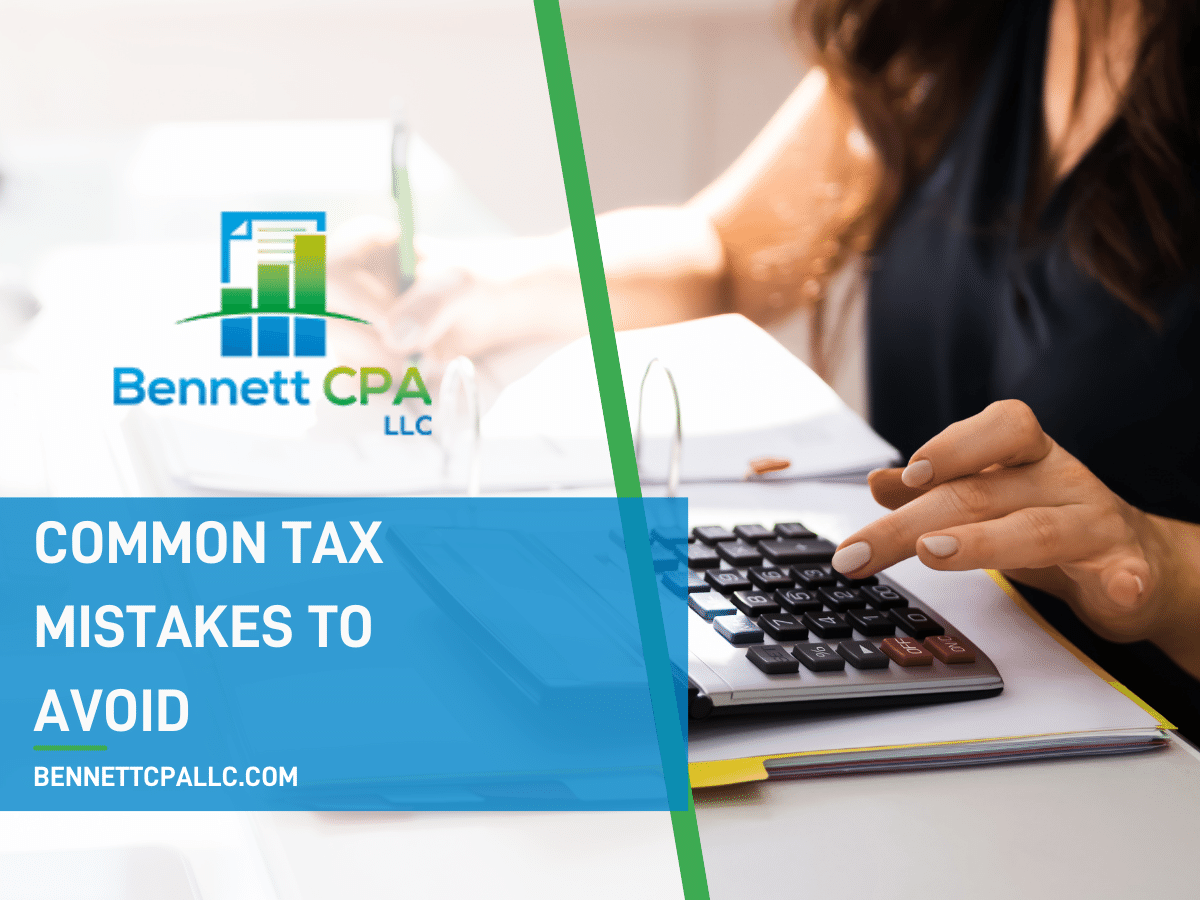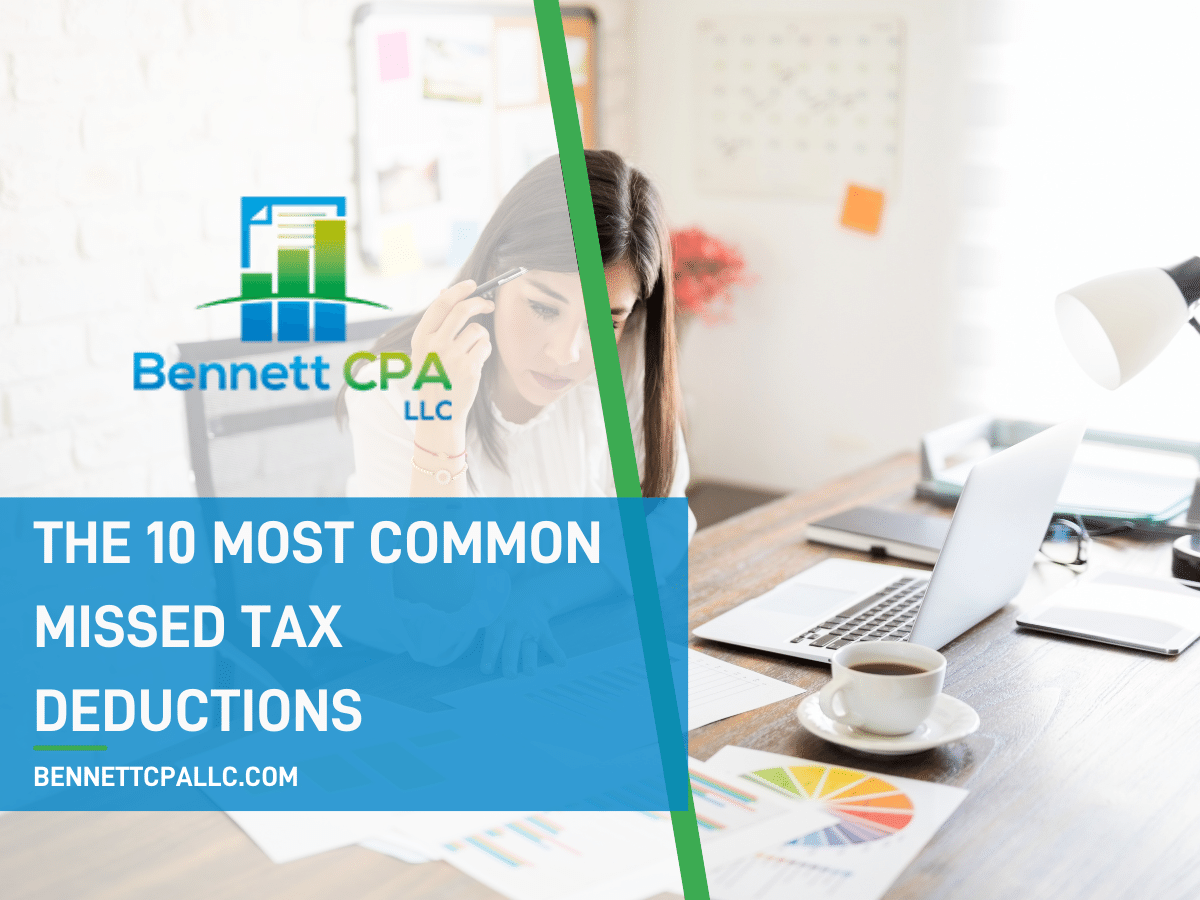Monday, May 17 was the official tax return deadline for 2021. The IRS has asked taxpayers to file early if possible, due to their own enormous backlog of returns they are sorting through. But even with a month’s extension, many people still struggled to get everything in order and file their returns by then. And whether you are filing late or have forgotten to file your taxes altogether, not staying on top of your taxes can cost you dearly.
This is why at Bennett CPA LLC, we are prepared to help people with all of their tax needs in Colorado Springs. We provide individual tax planning strategies unique to you, to help you take charge of your wealth. No matter what tax questions you have–about the late tax refund for this year or preparing to file next year’s on time–Bennett CPA is here to answer them. Whether it was due to a family emergency, lost documents, or even procrastination, if your taxes are late, read on to find out what to expect.
Did You File An Extension?
If you did file an extension for your 2020 tax return before May 17, your taxes will not be due until October 15. Because of this, you will not receive a penalty until after October 15. Some Americans have also received automatic extensions, such as those hit by the winter storms in Texas and other states. If you did not file an extension, however, the late filing penalty will still be calculated from May 17. After more than 60 days from your filing deadline, the IRS will be able to impose a failure-to-file penalty.
What Are The Penalties For Filing A Tax Return Late?
If you have not filed your taxes yet for 2020, there are penalties you should be aware of. Missing the deadline means the IRS could impose a failure-to-file penalty, which is 5% of your unpaid taxes for every month your return is late. This penalty maxes out after 5 months, and will not exceed 25%. Interest will also build up daily, which will accrue daily and compound starting after May 17, until the amount is paid in full. Any other outstanding penalties you have will also build up interest as well.
What Is The Penalty For Failing To Pay Taxes?
If more than 60 days have passed since the tax deadline and you have not filed your taxes, you could be fined $435 or the full amount of the tax you owe–whichever is smaller. The failure-to-pay penalty is 0.5% of your unpaid balance for every month the tax is not paid. If the IRS issues a final notice of intent to levy or seize property, you will have 10 days before that penalty rate jumps up to 1%. The penalty can grow up to 25% of the unpaid tax, so the longer you wait, the more difficulties you will have to deal with. However, there is also one way you can avoid penalties.
If You Are Owed A Refund
For taxpayers who are owed a refund this year, however, there is no penalty for filing late. Filing late in this case does mean you will also have to wait longer to receive the money owed to you. The longer you wait, the longer it will take you to get your money back from the government. If you do not owe taxes this year, there are very few penalties to worry about in the tax code. Still, you should still be aware of the tax code in Colorado and perhaps ask a CPA to help you understand the rules of your state tax authority.
There is also a three-year limitation to claim a tax refund coming your way. You also have three years to correct a tax return in order to claim any refund money left on the table. This means you will have until May 17, 2024 to get any tax refund that is owed to you. If you filed for an extension, you will have until October 15, 2024.
Your Tax Strategy | Bennett CPA LLC
No matter what tax strategy you need, Bennett CPA does it all. We will help you with any of your tax needs, any time of the year. And we will do it with our core values: clarity, efficiency, simplicity, honesty, integrity, and value. That is just part of what makes us the best CPA services company in Colorado Springs. Contact us today so we can help you with your individual tax needs!





